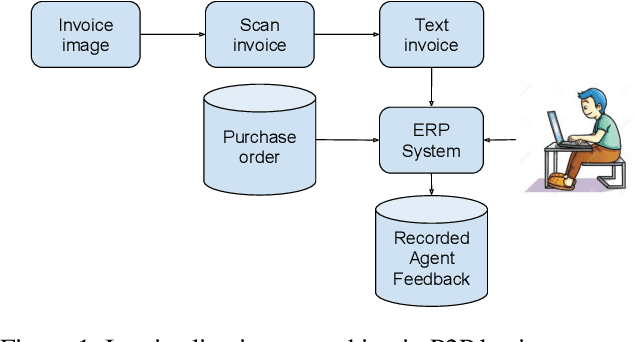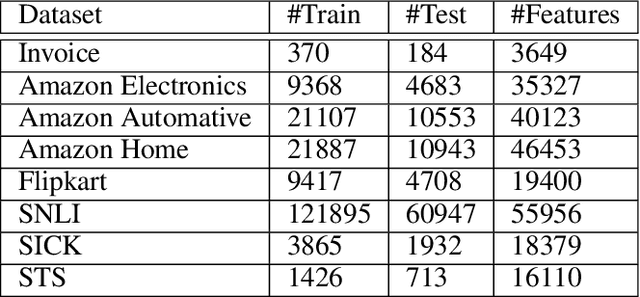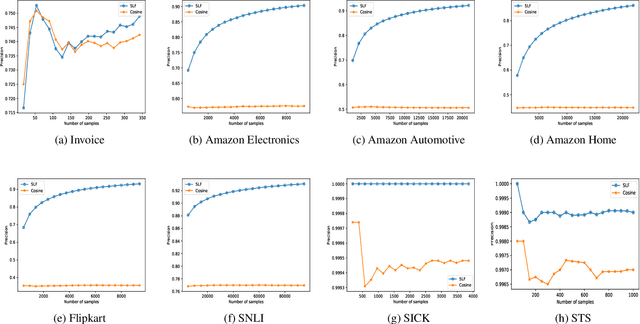Online Similarity Learning with Feedback for Invoice Line Item Matching
Paper and Code
Feb 14, 2020



The procure to pay process (P2P) in large enterprises is a back-end business process which deals with the procurement of products and services for enterprise operations. Procurement is done by issuing purchase orders to impaneled vendors and invoices submitted by vendors are paid after they go through a rigorous validation process. Agents orchestrating P2P process often encounter the problem of matching a product or service descriptions in the invoice to those in purchase order and verify if the ordered items are what have been supplied or serviced. For example, the description in the invoice and purchase order could be TRES 739mL CD KER Smooth and TRES 0.739L CD KER Smth which look different at word level but refer to the same item. In a typical P2P process, agents are asked to manually select the products which are similar before invoices are posted for payment. This step in the business process is manual, repetitive, cumbersome, and costly. Since descriptions are not well-formed sentences, we cannot apply existing semantic and syntactic text similarity approaches directly. In this paper, we present two approaches to solve the above problem using various types of available agent's recorded feedback data. If the agent's feedback is in the form of a relative ranking between descriptions, we use similarity ranking algorithm. If the agent's feedback is absolute such as match or no-match, we use classification similarity algorithm. We also present the threats to the validity of our approach and present a possible remedy making use of product taxonomy and catalog. We showcase the comparative effectiveness and efficiency of the proposed approaches over many benchmarks and real-world data sets.
 Add to Chrome
Add to Chrome Add to Firefox
Add to Firefox Add to Edge
Add to Edge